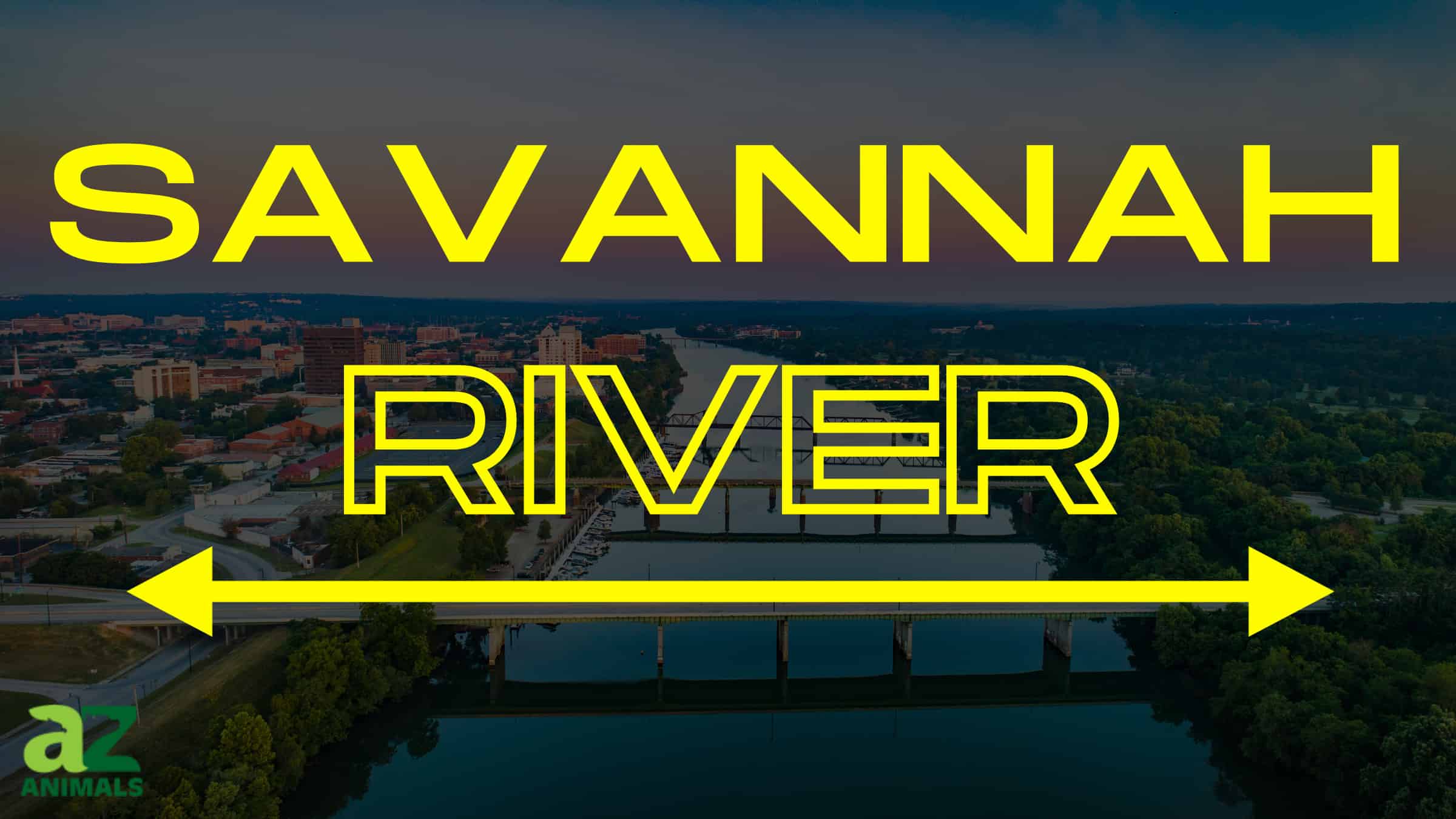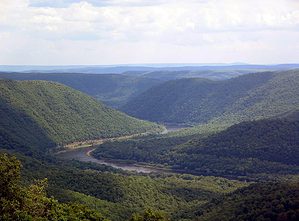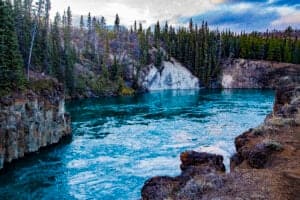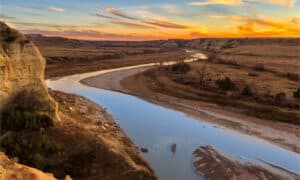The Savannah River is a rich water vein that provides city drinking water and habitats for numerous wildlife species. It borders three states and historically enabled communities to flourish, providing water, food, transportation, and irrigation. It’s an important river, but just how long is the Savannah River from start to end? Where does it finish, and how does it compare to other rivers?
Let’s dive in.
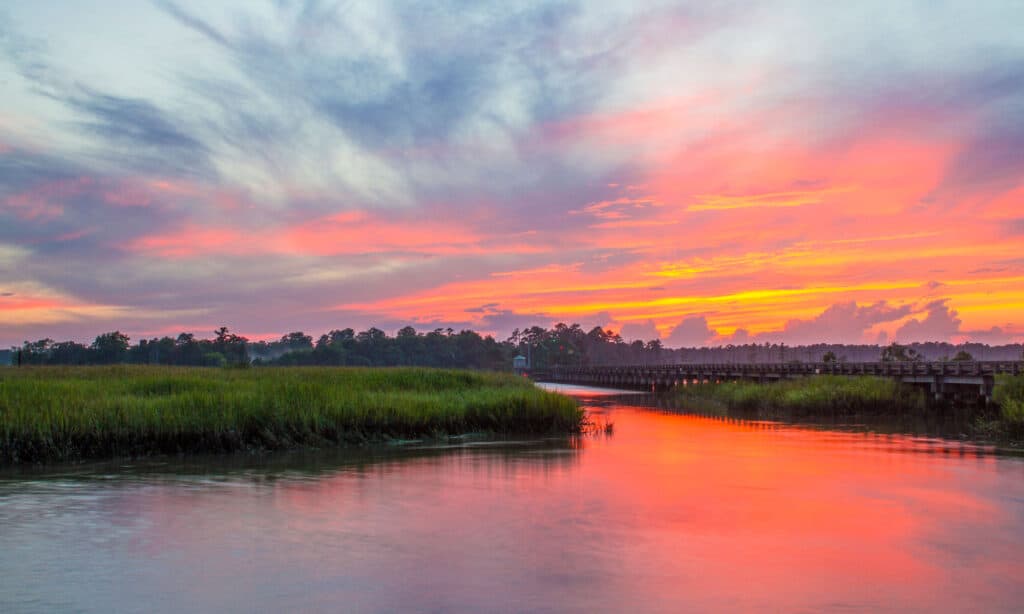
The Savannah River is 301-312 miles long. It forms the border between Georgia and South Carolina.
©iStock.com/Allen Allnoch
How Long Is the Savannah River?
The Savannah River splits Georgia and South Carolina. Estimates vary, but experts say it’s between 301 and 312 miles long from its Blue Ridge Mountain Appalachian headwaters to an estuary on the Atlantic Ocean approximately 15 miles downstream from Savannah City. Its watershed covers 10,577 square miles, and tributaries including the Tuglaloo and Chattooga Rivers, flow into it, alongside mountain snowmelt.
Is the Savannah River Important?
Yes, it’s is an important waterway. The river provides 1.4 million Augusta and Savannah residents with drinking water and waste water treatment. As the Atlantic Ocean pushes more saltwater into the estuary, coastal towns such as Hilton Head and Beaufort rely on it more heavily on it for their drinking water, too.
Historically, the Savannah River estuary area was critical for the colonial period, providing food, water, and transport. Over the years, dams, locks, and dredging works have made this waterway navigable, moving people and goods through mountains, forests, swamps, farmland, creeks, and marshes over 200 miles.
Where is the Savannah River Located on a Map?
The very northmost spring rises in the Appalachian Mountains and finishes near Tybee Island in Georgia.
How Deep Is It?
The Savannah River is 301-312 miles long from start to finish, and it’s 105 feet deep at its lowest point. It averages around 10-40 feet of depth as it winds its way southward to the Atlantic.
Is the Savannah River the Longest River In Georgia?
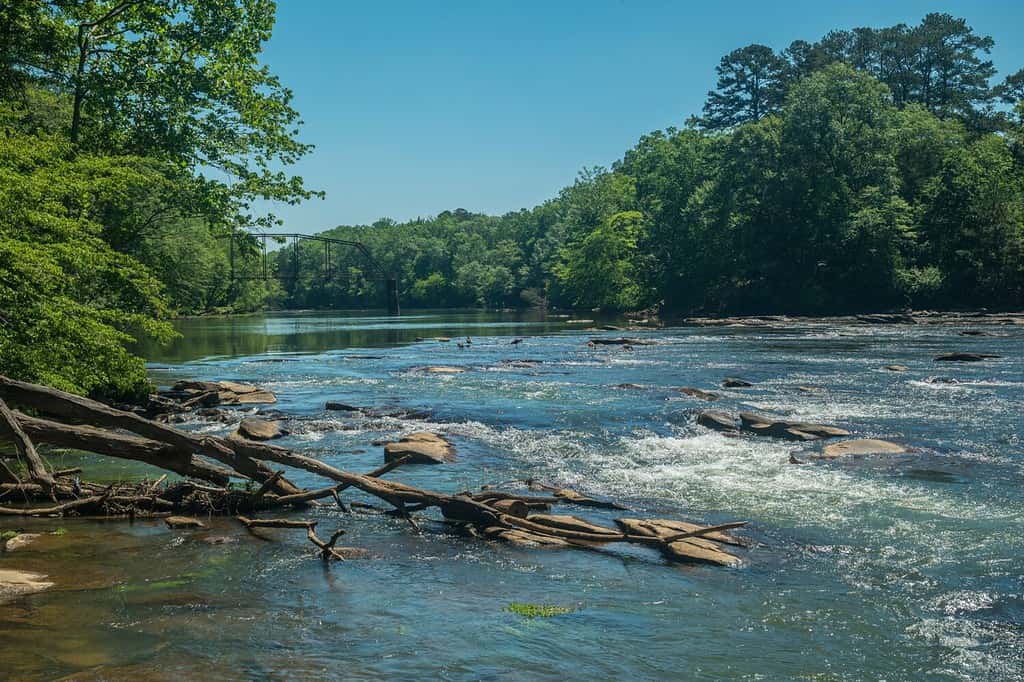
Chattahoochee River is the longest river in Georgia. It’s 430 miles long.
©Sandra Burm/Shutterstock.com
At 301-312 miles long, the Savannah River sounds pretty epically long, but it’s not Georgia’s longest river by a long shot.
The longest river in Georgia is the 430-mile-long Chattahoochee River. This river flows from the southern Appalachian Mountains into Lake Seminole. The second longest is the Flint River totalling around 344 miles. The Savannah River finishes in third place.
In fourth place is the 294-mile-long Ogeechee River and the fifth longest river in Georgia is the Coosa River with a cool 280 miles.
In the USA?
How about the rest of the United States? How does our river measure up?
The longest river in the U.S. is the Mississippi River at 2,340 miles long. It’s a close run competition with the Missouri River’s 2,466 miles. Just 126 miles in it!
And the world?
The world’s longest river is arguably the African Nile measuring a whopping 4,160 miles long, dwarfing the Savannah River’s 301-312 miles.
What Lives In The Savannah River?
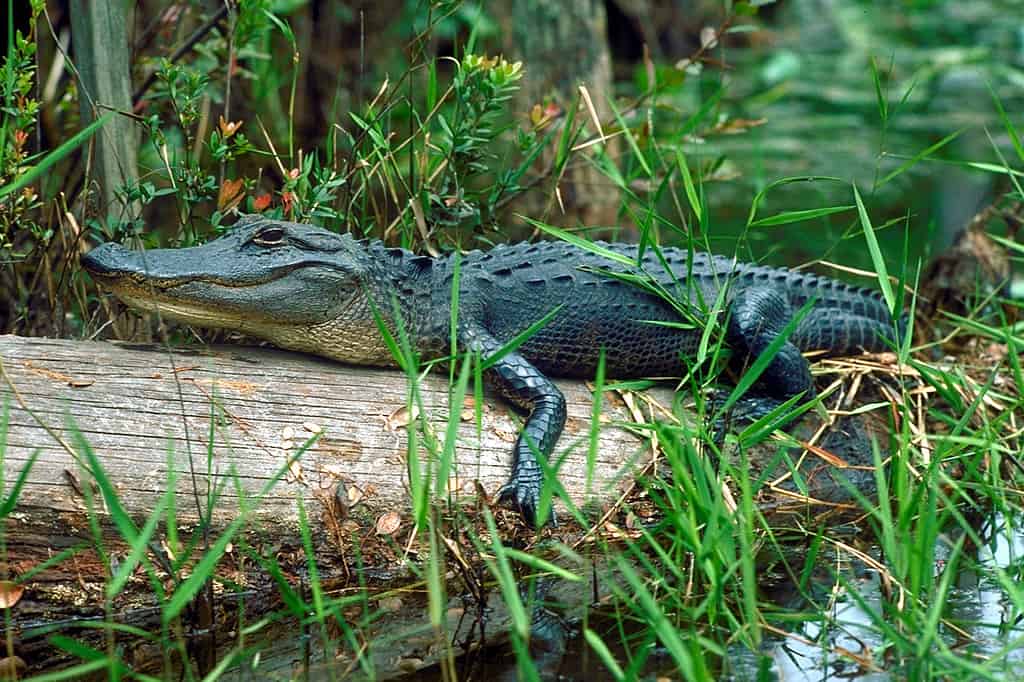
Alligators
live in the river where they hunt fish, turtles, mammals, and birds.
©Jonas N. Jordan, U.S. Army Corps of Engineers, Public domain, via Wikimedia Commons – License
Just over 300 miles means there’s a lot of water and various ecosystems for wildlife. Unfortunately, the river is polluted, so it’s unsafe to swim in, and at certain points, traffic makes it dangerous. However, animals have made it their home from the mountains to the estuary. Much wildlife is preserved at the 28,168-acre Savannah National Wildlife Refuge near Savannah City.
Here are a few of the animals living in or near the Savannah River:
- American alligators
- Bald eagles
- Osprey
- Wood storks
- Great horned owls
- Manatee
- Armadillo
- River otters
- Eastern diamondback rattlesnake
- Opossum
Providing much food for these species (and sport for anglers) is an incredible array of fish. The 301-312 mile long Savannah River contains American eel, striped bass, trout, and catfish, too!

The Savannah River runs past Savannah City into the Atlantic Ocean.
©Sandi Cullifer/Shutterstock.com
Thank you for reading! Have some feedback for us? Contact the AZ Animals editorial team.

